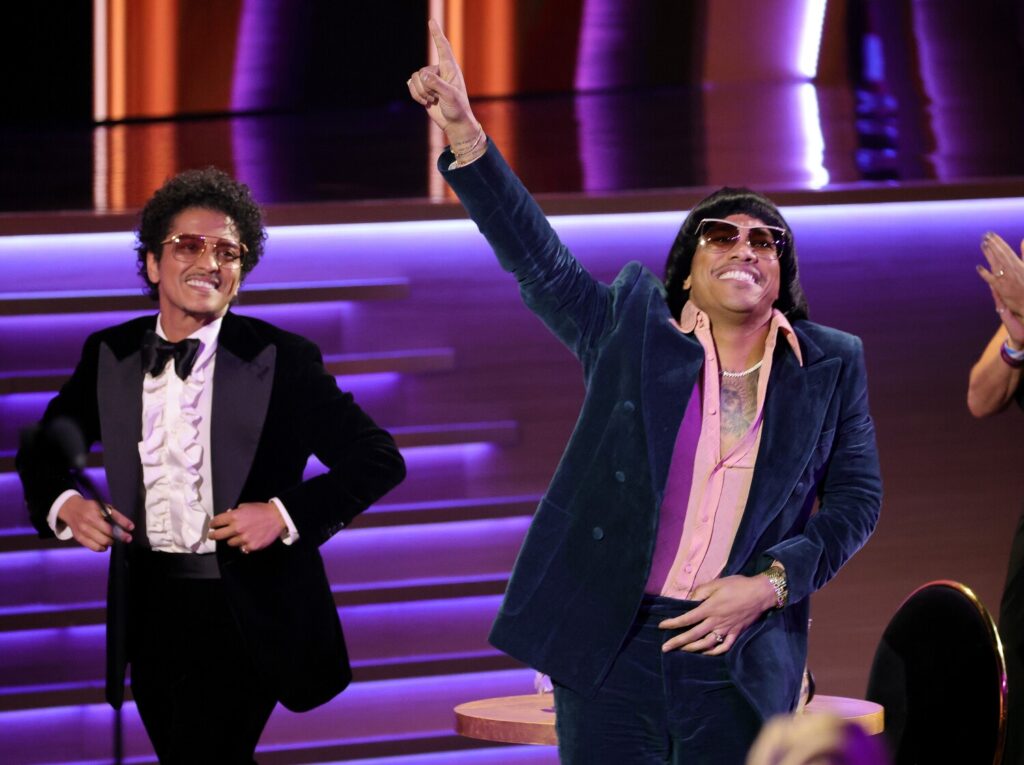Songwriters are getting their moment in the sun.
The Recording Academy announced Thursday that it plans to hand out a newly created Grammy Award for songwriter of the year beginning with the 65th Grammys ceremony set to take place in 2023.
The prize, modeled on the organization’s producer of the year award, will “recognize the written excellence, profession and art of songwriting,” according to a statement from the academy, and will honor “the most prolific non-performing and non-producing songwriters” for work released during a given ceremony’s eligibility period.
That language means Taylor Swift or Bad Bunny, for instance, couldn’t win the award for songs they wrote or co-wrote to perform themselves; ditto Louis Bell, say, for songs he wrote and produced for Post Malone. Think instead of someone like Sarah Aarons, who in an era when pop and hip-hop tracks are often assembled by committee, has co-written hits for Maren Morris, Zedd and Gracie Abrams. (For the 65th Grammys, whose date hasn’t been announced, songs and albums released between Oct. 1, 2021, and Sept. 30, 2022, will be eligible for consideration.)
So why a new award?
“The song is the building block for our entire creative industry,” Recording Academy Chief Executive Harvey Mason Jr. told The Times. Mason described the songwriter of the year prize as part of the academy’s larger effort to “wrap our arms around more creators and more excitement around music.” (At April’s 64th Grammys, top categories including album of the year and best new artist featured 10 nominees, up from eight, for the first time. Songwriter of the year, like producer of the year, will have five nominees.)
The songwriting award was one of several new Grammys the academy introduced Thursday, along with prizes for alternative music performance and Americana performance — those recognize individual songs in genres that already had album categories — and an award for score soundtrack for video games and other interactive media.
Of that last prize, Mason said the academy wanted to “make sure we’re not missing the incredible skill and talent” of composers “creating spectacular art around video games” such as “Halo,” “Minecraft” and “Assassin’s Creed,” tracks from which boast tens of millions of streams each on Spotify.
“When we hear from a constituency, and they’re saying, ‘Hey, we’re out here, and you’re missing us,’ we pay close attention,” Mason said of the game composers among the academy’s approximately 11,000 voting members.
Also included in the rule changes for the Grammys was a split of the spoken-word category into two awards — one for audio book, narration and storytelling and one for poetry — and a newly created prize for song for social change. According to the academy’s guidelines, that award — which will be determined by a committee of insiders rather than by Grammy voters — is meant to celebrate songs with “lyrical content that addresses a timely social issue and promotes understanding, peacebuilding and empathy.”
Asked whether he’s concerned that such a commendation might turn off conservative viewers who regard awards shows as venues for grandstanding Hollywood liberals, Mason said, “We’re always concerned with turning off anybody, but I’m hopeful we’re not doing that because this is a celebration of music, not of politics.”
The academy also announced that it will begin charging members to submit more than five recordings for consideration for the Grammys. Fees will range from $40 to $125, depending on time of submission, though the guidelines say that “any member who would be burdened by the entry fees” can request they be waived.
Mason said the fees are intended to discourage members from “using the scatter approach of just trying to submit every song on your record in every genre, even though you darn well know it’s not a country record. Maybe someone wants to see their name across the ballot because they figure if voters see it for a bunch of years in a row, maybe it’s going to stick.”
The academy hasn’t officially said where the 65th Grammys will take place, but the ceremony is expected to return to its longtime home of Crypto.com Arena (formerly Staples Center) in downtown Los Angeles after a pandemic-inspired move this past spring to Las Vegas.
Big winners at the 64th Grammys included Jon Batiste’s “We Are” for album of the year, Silk Sonic’s “Leave the Door Open” for record of the year and song of the year and Olivia Rodrigo for best new artist.

